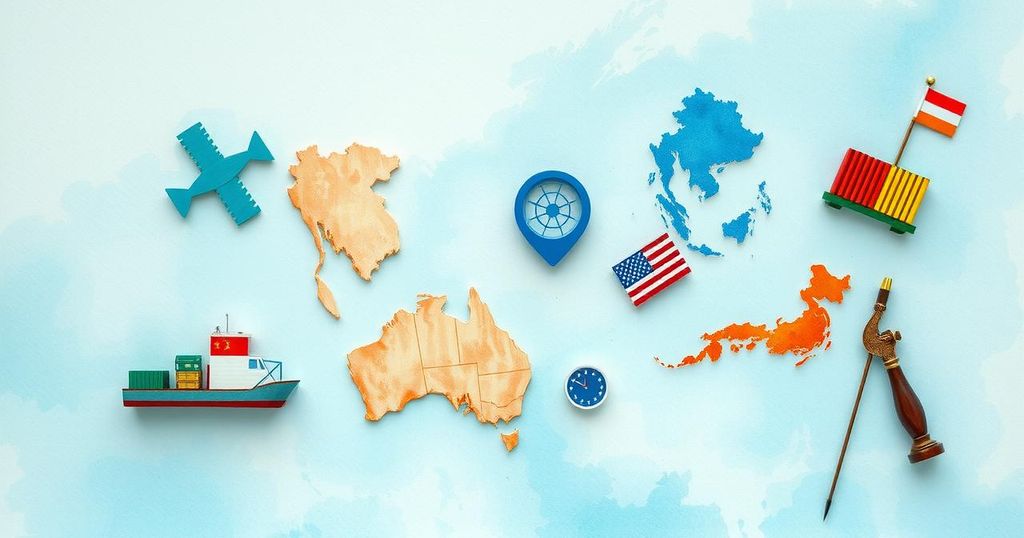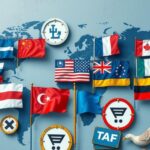Southeast Asia Seeks Diplomatic Solutions to U.S. Trade Tariffs
Southeast Asian nations, particularly Vietnam, Cambodia, and Indonesia, seek diplomatic negotiations with President Trump to mitigate the impacts of significant tariffs imposed on imports. These countries are adjusting their trade policies in hopes of safeguarding their economies and sustaining their access to the US market amidst rising tensions.
Southeast Asian nations, including Vietnam, Cambodia, and Indonesia, have adopted a diplomatic approach in light of President Donald Trump’s steep tariffs on global imports. Rather than retaliate like China and the European Union, these countries seek dialogue to mitigate economic fallout caused by the tariffs, which have triggered significant market declines and fears of a global downturn, as highlighted by Bloomberg.
Vietnam, for example, is concerned about maintaining its competitive manufacturing edge, which has benefited from companies relocating production from China. Prime Minister Pham Minh Chinh expressed his willingness to engage with Trump directly, even suggesting a golf outing at Mar-a-Lago to discuss trade issues. To alleviate trade tensions, Vietnam has also reduced tariffs on select US goods such as automobiles, ethanol, and LNG.
Cambodia faces the highest tariff among Asian nations at 49 percent, responding by lowering its tariffs on US imports and increasing its purchases from the US. According to Simon Evenett, founder of the St. Gallen Endowment for Prosperity Through Trade, Cambodia’s actions aim to gauge the US’s willingness to negotiate without discouraging broader trade relationships.
Indonesia has also taken proactive measures, pledging to ease trade restrictions amid its own 32 percent tariff burden and sending a delegation to the US to negotiate.
Market reactions indicate optimism among US apparel companies that rely on Vietnam’s cost-effective manufacturing. The nation has become a major supplier for footwear giants like Nike and Adidas, exporting $44 billion in textiles last year, predominantly to the US. President Trump has reiterated the advantages tariffs provide for negotiations, emphasizing the leverage they create as countries reach out to the US.
In summary, Southeast Asian nations are actively courting President Trump to alleviate trade tensions aggravated by substantial tariffs on imports. With a focus on dialogue, countries like Vietnam, Cambodia, and Indonesia are adjusting trade policies to protect their economies and maintain access to the US market. The outcome of these negotiations remains uncertain, largely dependent on the concessions the region is prepared to make and the definitions of satisfactory agreements as determined by the US administration.
Original Source: news.abplive.com








Post Comment